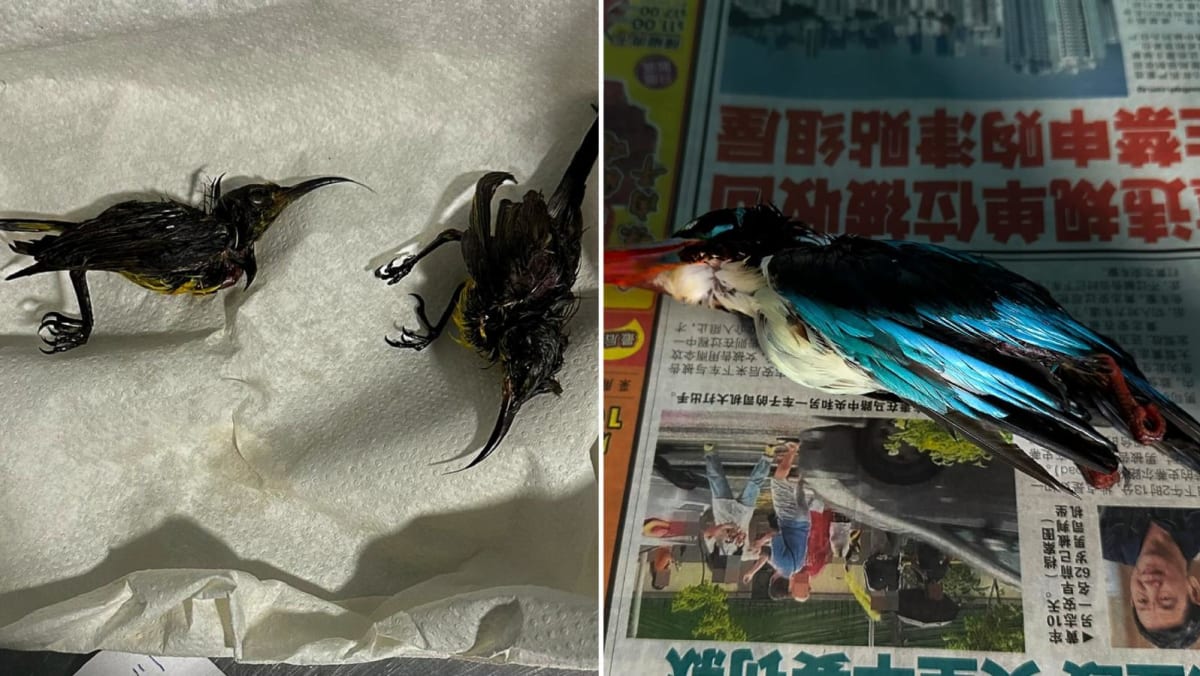SINGAPORE: Four birds have died after they were found trapped with glue at Gardens by the Bay, the Animal Concerns Research and Education Society (ACRES) said on Tuesday (Oct 22).
Two olive-backed sunbirds and a magpie robin were found on Aug 11, while a white-throated kingfisher was found trapped on Sep 30, said ACRES co-CEO Anbarasi Boopal.
“We are glad that Gardens by the Bay was swift to acknowledge and monitor the situation. Sadly, the four birds died despite rescue efforts,” she said.
The four birds died from stress, ACRES said in a Facebook post.
“Once we realised this was a poaching effort, our animal crime investigations unit reached out to Gardens by the Bay to alert them,” Ms Anbarasi told CNA.
“If we get any future reports, we can inform them directly as well to investigate.”
In response to queries from CNA, Gardens by the Bay said on Tuesday that it does not tolerate or condone poaching.
A spokesperson for Gardens by the Bay added that measures have been taken to deter poachers, including increasing the frequency of patrols, installing CCTV cameras at hotspots and trimming low-hanging branches to discourage them from setting up traps.
“We also enlisted the help of ACRES to train our staff to look out for signs of suspected poaching, such as the presence of traps or caged birds, and equipment like glue, nets and ropes.
“Internal investigations are ongoing, but the culprit has yet to be caught,” it added.
The poaching of wildlife is an offence under the Parks and Trees Act.
GLUE TRAPS
In its Facebook post, ACRES said it has advocated for a ban on glue traps in Singapore as commercially purchased glue for poaching birds is a “growing concern”.
According to the organisation, a glue trap is typically dark-coloured and is often applied to bare twigs or tree barks, where “unsuspecting birds may perch”.
It asked the public to help by documenting evidence of poaching attempts and looking out for suspicious individuals or vehicles that might be associated with these traps.
“For glued-trapped animals, the prognosis can be very unpredictable, as no one would know how long the animal has been trapped on it, without food or water.
“When we rescue glued wildlife with fur or feathers, it can affect their ability to survive in the wild … Most come in dehydrated, many die too despite rescue. So glue trap use is cruel and inhumane,” said Ms Anbarasi.
If a member of the public finds a trapped bird, they should call ACRES’ wildlife rescue hotline at 97837782, or contact the National Parks Board (NParks) for assistance.
They should not attempt to remove the bird themselves without guidance, as improper handling can cause further harm.
“We truly appreciate the community for being our eyes and ears and for filing these reports.
“Your efforts continue to be instrumental in helping us work with estate management and enforcement to put effective deterrents in place,” ACRES said.
